The 1970s was a golden age for television, a time when networks weren’t afraid to push boundaries, take risks, or provoke a laugh—even if it meant ruffling some feathers. But the cultural norms of the ’70s were a far cry from today’s standards. Some shows that we watched religiously back then, laughing along or nodding in agreement, would be met with outrage if they aired today. Let’s take a nostalgic (and slightly cringy) look at 12 TV shows from the ’70s that would likely get the axe in today’s world.
1. “All in the Family” (1971–1979)
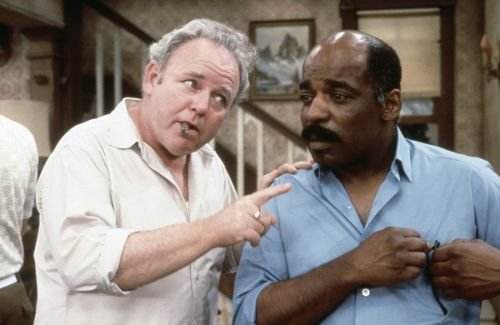
Archie Bunker was a household name and a lightning rod for controversy. The show tackled race, gender, and class issues head-on, often through Archie’s bigoted rants. While its intent was to expose prejudice through humor, today’s audiences might find it too uncomfortable or offensive, even with the satirical intent.
2. “Three’s Company” (1977–1984)
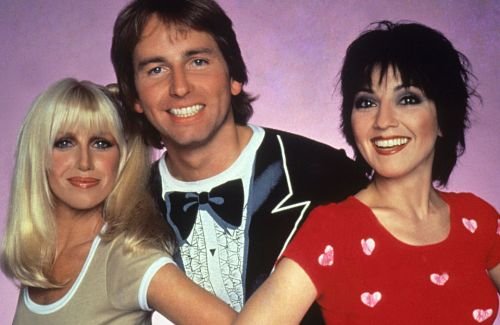
This sitcom revolved around Jack Tripper pretending to be gay so he could live with two women. The show’s humor often relied on outdated stereotypes and sexual innuendo that would raise eyebrows in today’s more inclusive cultural climate.
3. “The Dukes of Hazzard” (1979–1985)
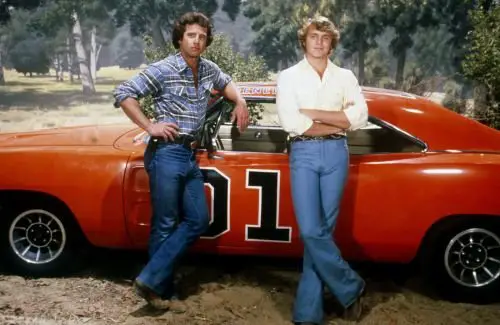
Beloved for its car chases and Southern charm, this show’s use of the Confederate flag on the General Lee would cause a firestorm today. It’s become a symbol of division, and the show’s lighthearted approach to it doesn’t sit well with modern audiences.
4. “Charlie’s Angels” (1976–1981)
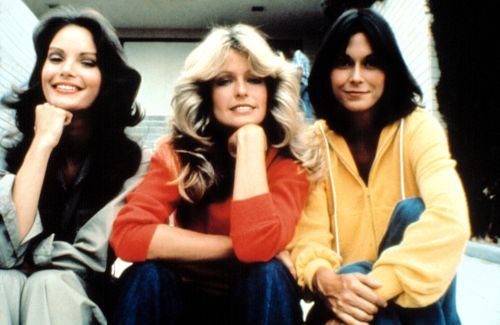
This groundbreaking show gave us three independent female leads—but their cases often required bikinis and flirtation as much as brains and skill. What passed as empowerment in the ’70s might feel more like objectification today, sparking debates about the portrayal of women in media.
5. “The Benny Hill Show” (1969–1989)
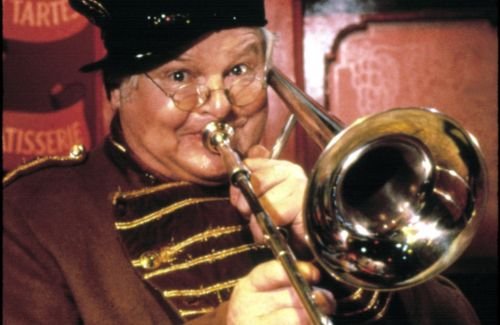
Though it started in the late ’60s, this British import was wildly popular in the ’70s. Its slapstick humor often leaned heavily on sexual innuendo and scantily clad women, a formula that would likely be considered sexist and out of touch in today’s TV landscape.
6. “Love, American Style” (1969–1974)
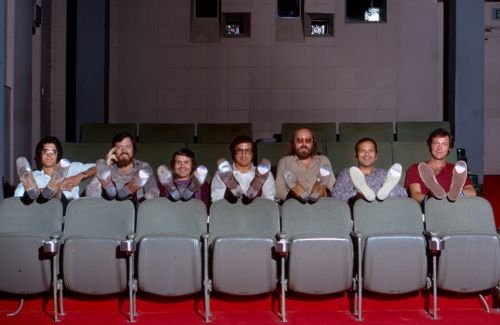
An anthology series filled with romantic comedies, this show often featured outdated gender roles and sometimes cringe-worthy takes on relationships. What was considered harmless fun then might now be criticized for perpetuating stereotypes.
7. “Maude” (1972–1978)
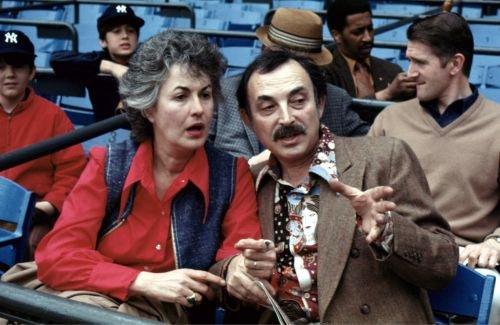
This groundbreaking All in the Family spinoff tackled issues like abortion, divorce, and women’s liberation—topics still sensitive today. Maude was a force to be reckoned with, but some of the blunt, polarizing humor would stir up social media outrage in ways networks might shy away from.
8. “Good Times” (1974–1979)
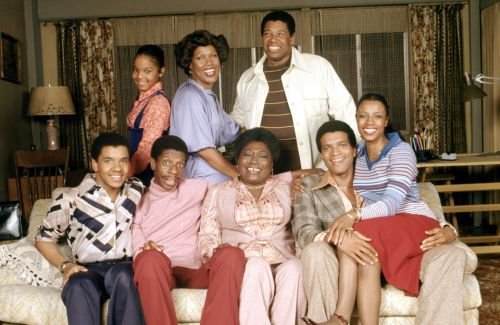
This show broke ground as one of the first sitcoms featuring a Black family, but some critics argue it leaned too much into stereotypes for laughs. Today, audiences might demand a more nuanced portrayal of the Evans family’s struggles and successes.
9. “Happy Days” (1974–1984)
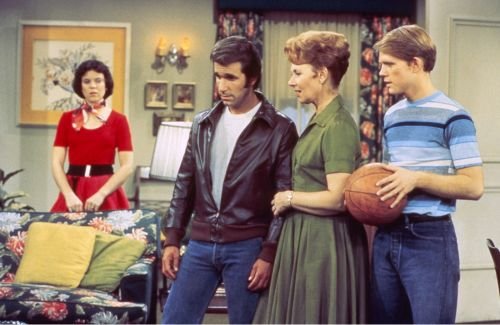
Wait, Happy Days? How could this wholesome show make the list? Well, episodes like Fonzie’s casual “locker room talk” or the portrayal of gender roles in dating might feel outdated. It’s more about the subtle cues that wouldn’t pass unnoticed in today’s world.
10. “The Jeffersons” (1975–1985)
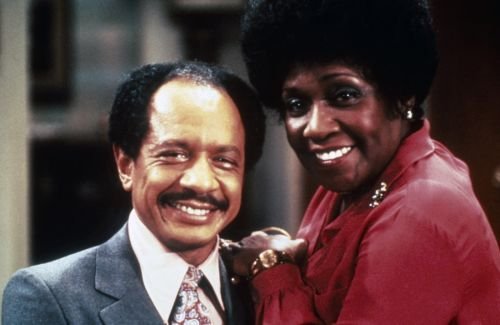
Like All in the Family, this spinoff used humor to tackle serious social issues. George Jefferson’s sharp tongue and bigoted remarks toward other characters would undoubtedly draw criticism today, despite the show’s focus on overcoming prejudice.
11. “Soap” (1977–1981)
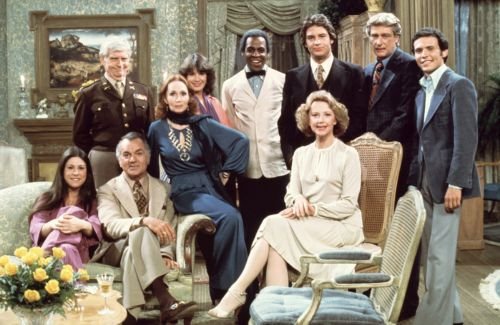
This satirical soap opera broke barriers with its groundbreaking portrayal of a gay character, but its humor often relied on stereotypes and controversial topics. While its intent was progressive for the time, today’s audiences might view it as problematic despite its historical significance.
12. “Chico and the Man” (1974–1978)
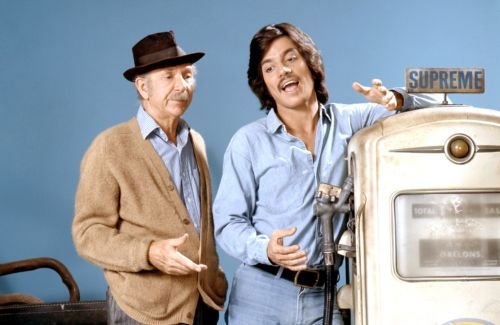
This show brought Latino representation to primetime TV, but its humor often played on ethnic stereotypes. The cultural sensitivity of modern audiences would demand a more respectful approach to its characters and storylines.
The ’70s gave us TV that wasn’t afraid to address big issues, even if the approach wasn’t always perfect. These shows are cultural time capsules, reflecting what made us laugh, think, or cringe back then. While they wouldn’t survive today’s scrutiny, they remind us how far we’ve come—and how much TV can shape our understanding of the world. What are your memories of these shows? Let us know!


